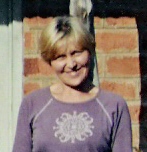ADVANCED FRUIT FARMER'S GROUP
Mangos were typically left because they were valued. So you see them here and there poking up all over this part of Africa, in the middle of crop fields. The prized local version was called "Mangododo" a rather large stringless variety (but quite strong turpentine overtones), as opposed to the "local mango" which was very stringy and rather small. In the market the price for these larger mangoes was perhaps K3 versus 50 tambala (3 cents to 1/2 a cent) for the local variety.
I discussed top-working with my counterpart in the agriculture department, Mr. C.Y.D. Mkandawire, which is a technique of grafting improved cultivars (varieties) onto mature trees in the field, to improve fruit quality. Usually this entails taking a 10 cm size branch and grafting several scions to it, often by cutting a wedge and stripping back the back then retacking the bark afterward.
Some time later, Mr. Mkandawire invited me over to his house. He said he wanted to show me something, and there - right away to the back left of his house he had done it, top worked (grafted) Mangododo on top of a local mango - not only this, but it was already sprouted and the new leaves quite large, though still soft and redish.
In the photo below, Mr. Emson Silungwe, one of the group's farmers and the secretary of Mulembe Village Development Committee (VDC) is on the left, Mr. C.Y.D. Mkandawire is on the right.









